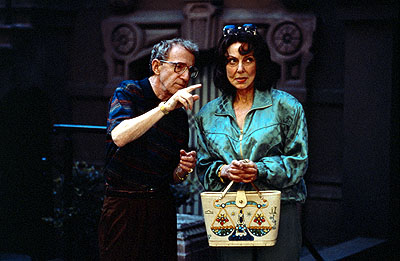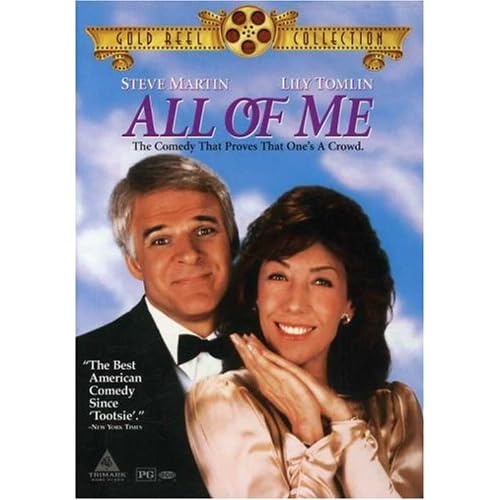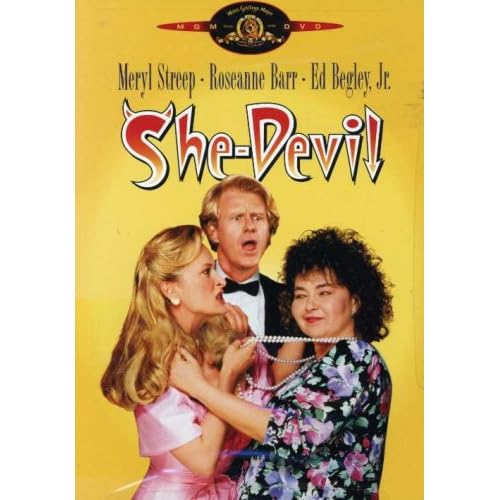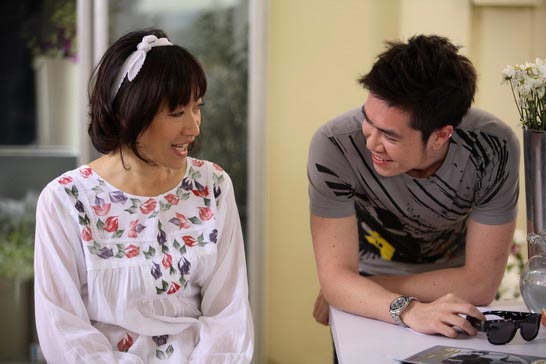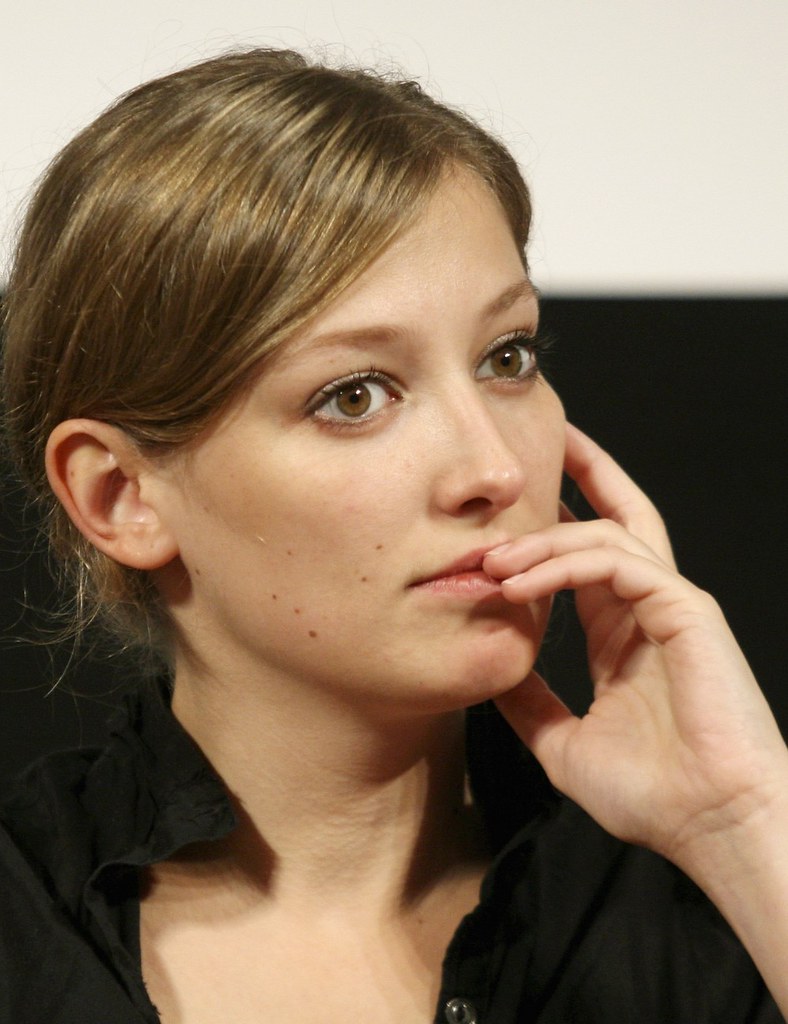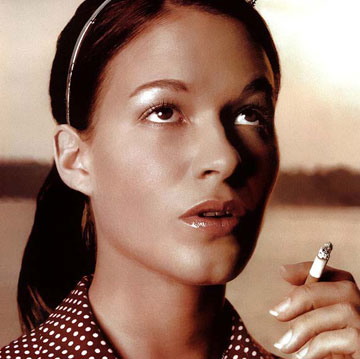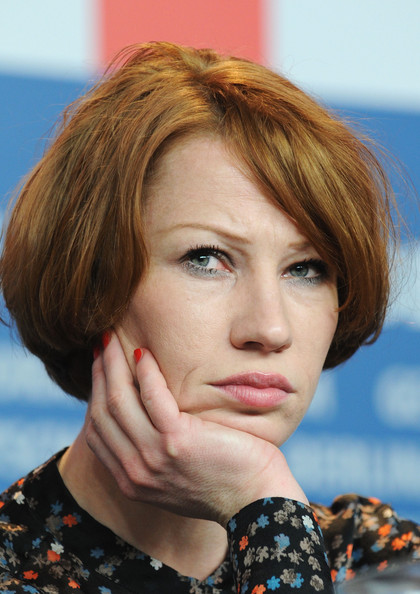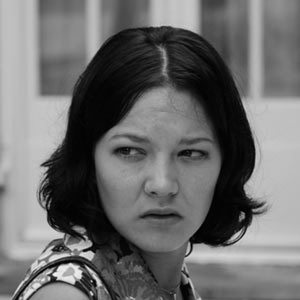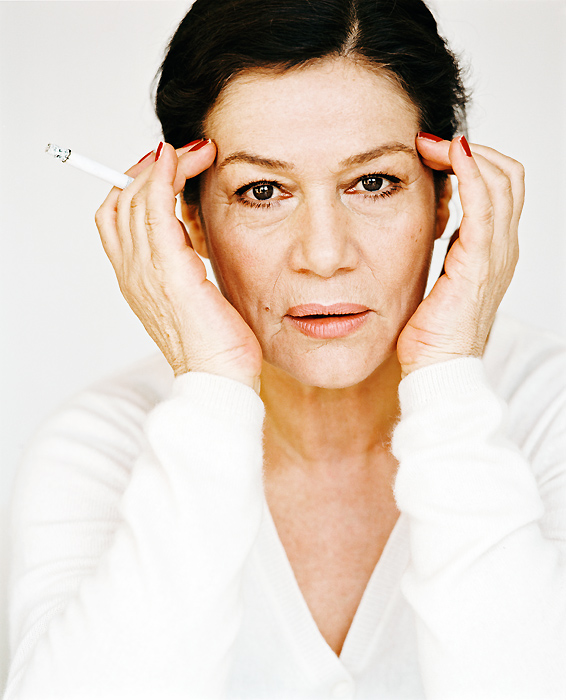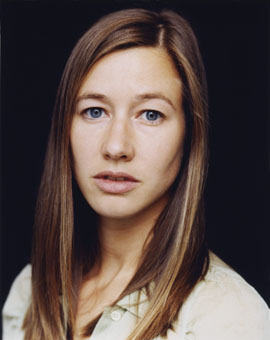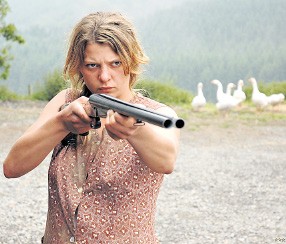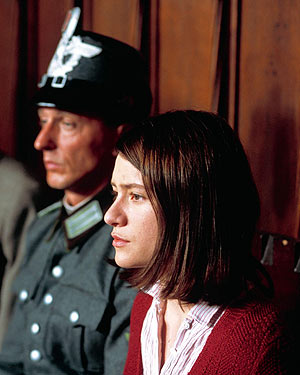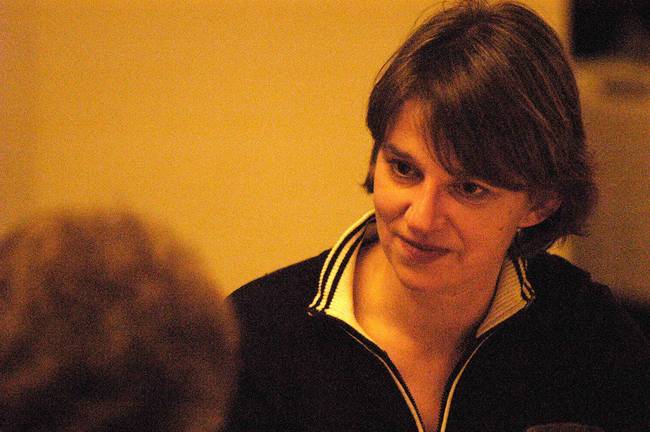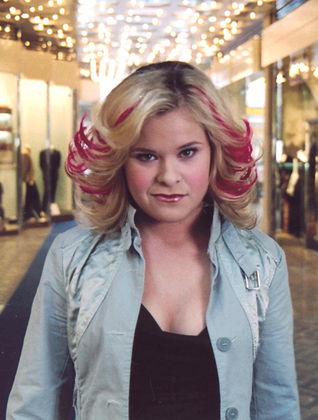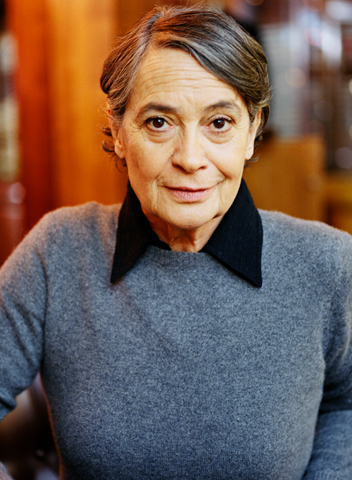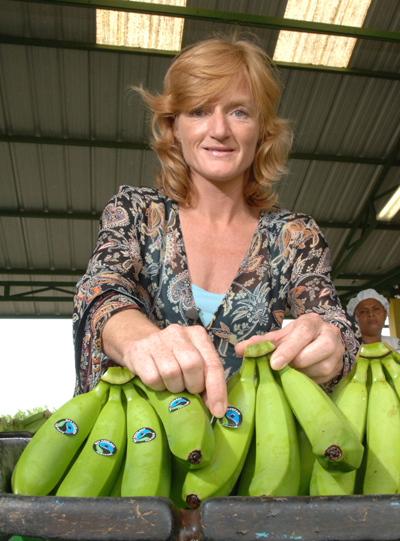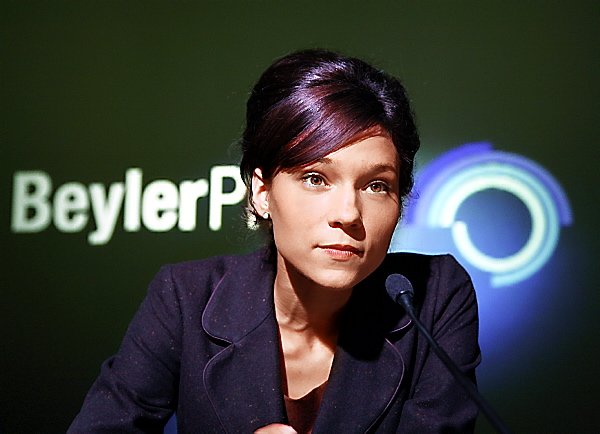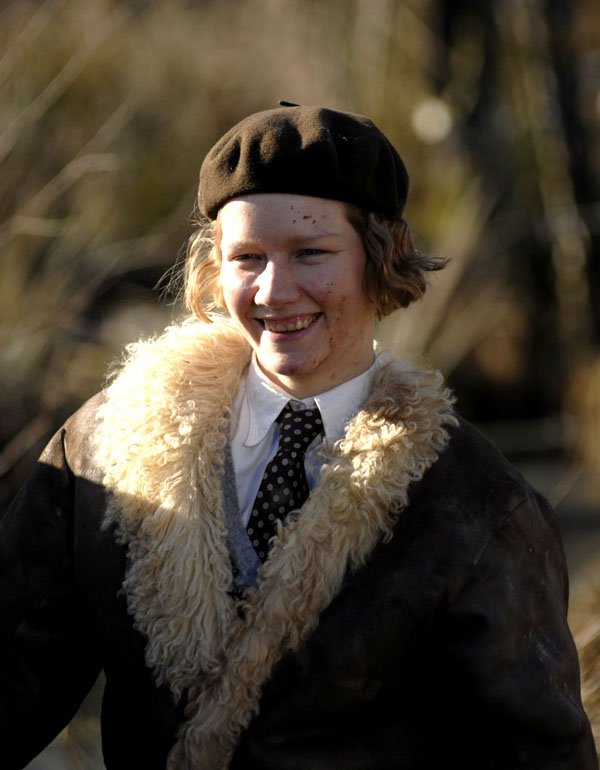I like MEAT GRINDER (2009, Tiwa Moeithaisong, A+/A) very much. The only reason why I don’t give it A+ is just because I don’t like the gore in this film. It is too much for me.
MEAT GRINDER stars Rattanaballang Tohssawat, who looks much more handsome in this film than in BANGKOK LOVE STORY (2007, Poj Arnon, A-). Another handsome actor in this film is Thanathorn Utsahakul, who plays a police officer in this film. He also has a small role in COMING SOON (2008, Sopon Sakdapisit, A-).
This is the HI5 of Thanathorn
http://arttnt.hi5.comThanathorn plays in some commercials, including this one for Leo Beer
http://www.kosanathai.com/tvcupdated/view_tvc.asp?GID=1&TVCID=28798He also stars in the music video THE ONLY THING I CAN’T GIVE (เรื่องเดียวที่ให้ไม่ได้) for the band Hyper:
http://www.youtube.com/watch?v=chopJwjjqlkHowever, after talking with Wiwat Lertwiwatwongsa (aka Filmsick), I think I may give MEAT GRINDER “A+” in the future. It depends on how much longer this film will stick in my mind.
Filmsick talked about a very convincing theory that actually MEAT GRINDER may talk about the same subject as THE MOONHUNTER (2001, Bhandit Rittakol, A). MEAT GRINDER may actually be a symbolic film. The real subject of it may be the struggle of the Thai communists and the conflict among the Thai communists in the late 1970’s. MEAT GRINDER just presents this subject by using symbols, while THE MOONHUNTER tackles this subject straightforwardly.
I don’t know what Tiwa thinks, but I like what Filmsick thinks very much. It is very suspicious that this film chooses to open with the event very similar to the Bangkok massacre in October 6, 1976. And it is very suspicious that this film emphasizes its period settings. Actually, the story of the serial killer in this film doesn’t need to be set in the past at all. But this film emphasizes all the time via its set decorations that the story happened about 30-40 years ago.
There are many details about the symbols in this film, about which thing actually stands for which thing. I think Filmsick may write about it in Thai in the future. Maybe MEAT GRINDER is like FIREBALL (2009, Thanakorn Pongsuwan, A+), WOR (2008, Banjong Sinthanamongkolgul, A+), and BUS LANE (2007, Kittikorn Leosirikul, A-). All of them are Thai political films which disguise themselves.
Here is my conversation with Filmsick in Facebook:
Filmsick: MEAT GRINDER – When communists’ fleeing to the forest = cooking food using human flesh
Celinejulie: “I didn't think about this symbolic level when I was watching it. But after you told me about it on Saturday night, I thought about it on Sunday, and I really agree with you.”
“The keypoint is the scene in which the hero told the mother of the dead student about what he had just done. Then we see the flashback that he went to visit the heroine and he also went to visit a group of students who will flee to the forests. That student group scene is not quite connected to the main story. So there must be a reason why it is put there.”
Filmsick: “yes i thnik so. I think the scene in which he met his friends before they go out to the woods is the key point . actually he goes to the woods too but in surrealistic way”
“and more for that the first victim we've seen is the student before it flashbacks to the capitalist (Somlek) and yes the people eating each other , so the commie was just a hysterical woman eating student's flesh”
Celinejulie: “I also think there is an interesting comparison between the body of the dead student which is hidden in the food stall, and the body of that character which is hidden in the earthen jar. The hero searches for the body of his friend, while the heroine is haunted by the body in the jar.”
Filmsick: “yeah yeah it was very interesting. Actually those are the only two bodies that the heroine doesn't kill”
Celinejulie: “Maybe the ending scene is not so bad, hahaha. The ending scene says that the violence to women and children will lead to something really really bad. But if "women and children" in this film can be referred to "people who oppose fascist system", the real message may be "the violence done to people who oppose fascist system will be repaid in the future."”
Filmsick: “i totally agree with you now haha”
After talking with Filmsick about MEAT GRINDER, I realized I have no knowledge about the communist struggle in Thailand. I searched in the internet and found a very interesting article called MURDER AND PROGRESS IN MODERN SIAM, written by Benedict Anderson. You can read this great article in Midnight University’s website:
http://www.midnightuniv.org/forum/index.php?topic=10188.0Here are some excerpts from the article:
“The Collapse of Rural Insurgency
Now it has been plausibly argued that Siam, Thai parliamentary democracy, and/or the Thai middle class benefited from an extraordinary stroke of luck in the collapse of the cpt’s rural insurgency as a result of the triangular Cambodia–Vietnam–China war that opened in December 1978. It is true that the Party was gravely damaged by its leadership’s decision to remain wholly loyal to Peking’s positions. It thereby lost its secure retreats in Laos and Cambodia, its opportunities for training cadres in Vietnam, and even its powerful radio-transmitter in Yunnan. (Prime Minister [General] Kriangsak Chomanan was shrewd enough to see the advantages of cementing close ties with ‘Little Bottle’ and his henchmen.) [24] But it can also be argued that the damage was especially severe because the Party was already struggling with the problem of what to do with the hundreds of middle-class youthful activists who fled to its jungle protection in the wake of the bloody 6 October 1976 coup. From a much younger generation, from comfortable homes, well-read and articulate, and with some real experience in national-level legal politics, these activists found it hard to accept many cpt positions automatically; the Party’s obtuse response to the crisis of 1978–79 made it almost impossible. Prime Minister Kriangsak was shrewd enough to offer a general amnesty, enabling the activists to come safely home. It is significant that the cpt made little effort to stop them, even though the spectacle of ‘massive defections’ compounded the severe political damage it had already suffered. All in all, there can be no doubt that the cpt’s decline, caused not by the Thai military’s battlefield successes, but by international political developments and its own internal haemorrhage, redounded principally to the benefit of the new Thai bourgeoisie. After 1978–79, it faced no serious threats from the left, or from below. By then it was also no longer much alarmed by the presence of Vietnamese troops on the country’s eastern border, though the military tried hard to make it so. The bourgeoisie recognized the real limits of Vietnam’s power, and Siam’s advantages in having the us–China–Japan axis ranged firmly behind it.But the Cambodia–Vietnam–China fighting erupted well after the fall of the post-6 October 1976 right-wing regime of Justice Thanin Kraiwichian, and it is his rise and fall that are really instructive for understanding the changing dynamic of Thai politics in the bourgeois era.”
Is the heroine of MEAT GRINDER the representative of rural communists? Is the hero of MEAT GRINDER the representative of urban intellectual communists who fled to forest at that period? I don’t know.
Talking about the communist struggle in Thailand, one incident in which I’m very interested is the Red Drum Massacre. I don’t know if any films have talked about this incident or not.
From Benedict Anderson’s article:
“The appearance of a mass-media audience for which political murders needed to be staged also meant that certain other political killings had to be kept secret from that audience. A good example of this paradox is the case of the Red Drum (Tang Daeng) slayings in Patthalung province in 1971–72. [9] These murders, designed to terrorize a local peasant population suspected of Communist sympathies, were not acceptable to a national audience which even the military regime of Sarit’s successors felt somewhat constrained to respect. Similarly, in the immediate aftermath of the fall of the military regime in October 1973 (see below), student activists were able to expose the locally public, nationally secret Ban Na Sai affair to undermine severely the state security apparatus’s legitimacy. [10] A conspicuous gap was opening up between the state as law and the state as apparatus.”
“[9] The victims, some dead, most still alive, were incinerated by the security forces in gasoline-filled, used oil drums. See Norman Peagam, ‘Probing the “Red Drum” Atrocities’, Far Eastern Economic Review, 14 March 1975.”
This is a Thai article about the Red Drum Massacre:
http://www.thaingo.org/story3/red_tang.htm“ประวัติศาสตร์ประชาชน "คอมมิวนิสต์และกรณีถังแดง" พัฒนาการหนึ่งของการขับเคลื่อนชุมชน
ประวัติศาสตร์ประชาชน "คอมมิวนิสต์และกรณีถังแดง"
พัฒนาการหนึ่งของการขับเคลื่อนชุมชน
3,008 ศพ ที่ถูกสังหารไปในระหว่างปี 2508-2534 ในเหตุการณ์
"ถีบลงเขา เผาถังแดง"
ยังเป็นที่จดจำรำลึกถึงและฝังความเจ็บร้าวไว้ในใจของคนที่สูญเสีย
และเมื่อม่านควันแห่งความสะพรึงกลัวต่อ "ปีศาจคอมมิวนิสต์"
นั้นเริ่มจากหายผ่านพ้นไป บวกกับสถานการณ์การเมืองคลี่คลายลง
ประชาชนมีเสรีภาพและมีสิทธิมากขึ้น
ตลอดจนสังคมไทยปัจจุบันกำลังสำลักความสะดวกสบายที่เฝ้ารอและเรียกร้องผู้ชนะในการแข่งขันอยู่ในกระแสทุนนิยม
กระนั้น....จนถึงวันนี้ การกลับมากล่าวถึงความจริง "กรณีถังแดง"
กล่าวถึงเหตุแห่งความสูญเสีย
กล่าวถึงคุณูปการในการเสียสละต่อสู้กับอำนาจทมิฬ
กล่าวถึงพลังทำร้ายต่อกันอันเกิดจากความงมงาย
เพราะถูกครอบงำจนหวาดกลัวออกอากัปกิริยาระแวงภัยต่อกันของสังคมไทยโดยเฉพาะผู้มีอำนาจ
หรือแม้แต่กล่าวถึงบทเรียนของชุมชน
ประชาชนชั้นรากหญ้าที่ต้องเข้าไปสู่สนามแห่งการต่อสู้และต้องสูญเสียชีวิตมากมาย
เพียงเพื่อลดทอนความระแวงและสะพรึงกลัวของผู้มีอำนาจนั้น
กลับไม่เกิดขึ้นเลย แทบจะในทุกๆ พื้นที่การศึกษา
ทุกระดับอำนาจของรัฐ หรือในกระบวนการเคลื่อนไหวของสังคม ว่าจะให้
"ดวงวิญญาณผู้สูญเสียชีวิตครั้งนี้
ถูกจารึกไว้ในหน้าใดของประวัติศาสตร์
และในที่ทางใดของหัวใจคนในสังคม"
วันนี้ประชาชน ชุมชนที่ร่วมรู้เห็นและญาติมิตรที่ต้องสูญเสีย
กำลังลุกขึ้นรำลึกพร้อมทั้งสร้างอนุสรณ์สถานให้วีรชนของตน
ที่ต้องพลีชีวิตในเหตุการณ์ "ถังแดง"
และตลอดจนกล่าวถึงบทเรียนนั้น ทั้งในทางประวัติศาสตร์
ที่รัฐไทยไม่กล้าบันทึกไว้ให้อนุชนรุ่นหลังได้ศึกษา
และในทางกระบวนการเรียนรู้เคลื่อนไหวของชุมชน
เพื่อสร้างความเข้าใจกับชุมชน ถึงความเป็นมา ว่า "กรณีถีบลงเขา
เผาถังแดง" คือพื้นที่หนึ่ง
ซึ่งเป็นชุมชนของความทรงจำทางการเมืองของขบวนการภาคประชาชน
และคือประวัติศาสตร์อันหาญกล้าของคนเล็กคนน้อย
ที่ต้องสังเวยชีวิตสนองอำนาจผู้ปกครองไทยที่ขลาดเขลาและขลาดกลัวในยุคสมัยนั้น
ณ วันนี้ ชุมชนตำบลลำสินธุ์ และชุมชนอื่นๆ ในบริเวณใกล้เคียง
ทั้งในเขตอำเภอกงหรา กิ่ง อ.ศรีนครินทร์ และอำเภออื่นๆ
ในจังหวัดพัทลุง ก็ยังขับเคลื่อนวิถีชีวิตมาเรื่อยๆ
ตราบตั้งแต่อดีตจนถึงปัจจุบัน เก็บงำเหตุการณ์ เรื่องราว
ความทุกข์ยากลำเค็ญมากมายไว้เพียงความทรงจำที่พร่าเลือน
แต่มิอาจปฏิเสธได้ว่า บทเรียนการต่อสู้ในยุคนั้น
ได้ก่อเกิดกระบวนการเรียนรูอะไรแก่ชุมชนและสังคมไทย
โดยเฉพาะคำตราหน้าว่า "คอมมิวนิสต์"
แท้จริงในทัศนะของคนในชุมชนคือใครและคืออะไร
เกิดขึ้นและเกี่ยวพันกับเขาได้อย่างไร
นายสมยศ เพชรฉาด นักวิจัยประวัติศาสตร์ท้องถิ่น
ซึ่งศึกษาวิจัยกรณีถังแดง กล่าวย้อนถึงวิถีชีวิตชาวตำบลลำสินธุ์
และข้อค้นพบเกี่ยวกับความเข้าใจเรื่องคอมมิวนิสต์ว่า
"ตำบลลำสินธุ์ มีประวัติความเป็นมาที่ยาวนานมาก
เกี่ยวพันธ์กับเจ้าเมืองพัทลุง หรือเกี่ยวพันกับชาวกงหรา
ซึ่งที่นี่มีประวัติศาสตร์มายาวนานมากพอที่จะยืนยันจากซากกระดูกมนุษย์โบราณได้
ที่กล่าวถึงนี่เพียงเพื่อจะบอกกล่าวถึงวิถีชีวิต
วัฒนธรรมของคนที่นี่ว่ามีความเป็นมาที่ยาวนานนะครับ
อาชีพส่วนใหญ่ของคนที่นี่ในอดีตคือ
การเกษตรที่พึ่งพาธรรมชาติเป็นหลัก ซึ่งทำมาแต่ดั้งเดิม
แต่กระนั้นชาวลำสินธ์ก็ยังต้องพึ่งพาปัจจัยภายนอกด้วยเช่นกัน
ทำให้คนที่นี่แต่โบราณเขาก็ออกไปแลกของหรือค้าขายด้วยเช่นกัน
เช่น หาลางสาดไปแลกข้าว หาของป่าไปขาย
ปัญหาของชาวลำสินธ์ก่อนยุคสมัยที่คอมมิวนิสต์จะเริ่มเข้ามานั้นคือ
ปัญหาโจรผู้ร้าย ซึ่งชุกชุมมาก ปัญหาการพนัน
ปัญหาหญิงสาวในชุมชนถูกฉุดคร่า ไปข่มขืน
ในขณะที่กฎหมายเข้ามาไม่ถึง ทำให้สภาพปัญหาในขณะนั้น
คือชุมชนไม่รู้จะพึ่งพาใคร พึ่งพาเจ้าหน้าที่ของรัฐก็ช่วยไม่ได้
เจ้าหน้าที่บางคนกลับเลี้ยงโจรไว้เอง ดังนั้น
เงื่อนไขการเข้ามาอาศัยอยู่ได้ของคอมมิวนิสต์คือ
สามารถปราบโจรได้ ซึ่งสังคมปัจจุบันอาจจะมองภาพนี้ไม่ออกแล้ว
ส่วนลัทธิคอมมิวนิสต์ ก็เป็นเพียงอิทธิพลทางความคิดที่เข้ามา
เหมือนกับการเข้ามาของอิทธิพลศาสนาพราห์ม หรือพุทธ
กับคอมมิวนิสต์นี้ แม้ว่าเราจะรับมาจากฝรั่งก็ตาม
แต่ก็เป็นแนวทางการแก้ไขปัญหาสังคม ดังนั้น
ในการเสาะหาหนทางแก้ไขปัญหาสังคมของชุมชน ของประเทศชาติ
หรือของโลก ถ้าเรามองในหลักการเรื่องเสรี
เราก็ควรจะเปิดกว้างให้มากที่สุด
แล้วก็หาวิธีแก้ไขที่ดีที่สุดมาแก้ปัญหา
ด้วยเหตุนี้อย่างการเข้ามาของลัทธิคอมมิวนิสต์ในพัทลุง
การมาฝังตัวที่เขาเจียก
หรือที่ไหนก็ตามมันเริ่มตั้งแต่หลังสงครามโลกครั้งที่ 2 แล้ว
และในภาคใต้ก็เริ่มนานแล้ว
แม้แต่ในตรังก็เริ่มมีการต่อสู้ของกรรมกรแล้วครับ
ส่วนการสาเหตุที่ชาวบ้านเข้าไปร่วมกับพรรคคอมมิวนิสต์
สาเหตุมาจากรัฐกลั่นแกล้งมากเกินไป จนต้องลุกขึ้นสู้
อย่างความเดือดร้อนเรื่องน้ำจากเขื่อนนาท่อมในสมัยนั้น
ชาวบ้านเดือดร้อนร้องเรียนยังไงก็ไม่ได้รับการแก้ไข
จนชาวบ้านต้องประกาศจะไประเบิดเขื่อนเลย
ถามว่าคอมมิวนิสต์เข้ามาได้อย่างไร ทางไหน ก็ทางนี้แหละครับ
แล้วมันก็เติบโตขยายไปตามระบบเครือญาติอย่างรวดเร็ว ทั้งๆ
ที่ผู้นำพรรคบางคนเป็นคนท้องถิ่นนี้เอง ซึ่งไม่เคยอ่าน
ไม่เคยศึกษาลัทธิมาร์กซ์-เลนินหรอก
อีกอย่างชาวบ้านเข้าไปร่วมเพราะอยู่ในภาวะเขาควายด้วย
ไม่เข้าร่วมกับรัฐก็ถูกยิง ไม่เข้าร่วมกับคอมมิวนิสต์ก็ถูกยิง
ทำให้ส่วนหนึ่งต้องหันมารวมตัวดูแลกันเอง
แต่ถึงกระนั้นก็ยังถูกตราหน้าให้เป็นคอมมิวนิสต์ครับ" นายสมยศ
กล่าวอธิบาย
นายวัฒนา ดิษฐาอภิชัย หรือ ครูกาด
อดีตสมาชิกพรรคสังคมนิยมและนักเคลื่อนไหวเรียกร้องในยุค 14 ตลาฯ
กล่าวถึงบริบททางสังคมและสถานการณ์ทางการเมืองของไทยและของโลกในขณะนั้น
ที่มีอิทธิพลผลักดันให้ชนชั้นผู้ปกครองไทยหวาดกลัวจนหันมาเข่นฆ่าประชาชนผู้บริสุทธิ์
"ผมก็เกิดและอยู่ร่วมสมัยพอควร แต่ผมอยู่กรุงเทพฯตั้งแต่ 2510
ตอนเกิดเหตุการณ์ถังแดง ผมอยู่กรุงเทพฯ พอเหตุการณ์นี้แดงขึ้นมา
คนที่มาจากใต้ทั้งหมดที่ไปเปิดพื้นไฮปาร์คที่สนามหลวง
ส่วนใหญ่จะได้รับทราบข่าวผ่านพรรคพวกของตนที่ภาคใต้ จากคนหลายๆ
คน ส่วนผมก็รับรู้จากผู้ใหญ่เชือน ลุงสุข ซึ่งเป็นคนในสมัยนั้น
ส่วนตัวผมไม่ค่อยได้ใกล้ชิดสนิทสนมกับคนที่นี่มากนัก
เพราะบ้านผมอยู่ทางทะเลน้อย แต่พอเกิดเหตุการณ์นี้ขึ้น
ทำให้เริ่มรู้สึกใกล้ชิด ผมลงมาทุกครั้งจะลงไปที่บ้านลุงสุข
บ้านผู้ใหญ่เชือน ซึ่งเท่าที่ผมประมวลจากประสบการณ์ทั้งหมด
เหตุการณ์นี้มันแยกไม่ออกจากสถานการณ์โลก
เมื่อครู่น้องผมพูดถึงเรื่อง
การโฆษณาเรื่องคอมมิวนิสต์ซึ่งในสมัยเด็กๆ ผมชอบไปดูหนังกลางแปลง
ประมาณปี 2501-2502 ผมอยู่ชั้นมัธยม 1 - 2 เท่านั้นเอง
ในสมัยนั้น ซึ่งตั้งแต่ พ.ศ. 2494 จนถึงผมเข้าโรงเรียน
พวกจัดตั้งแบบนี้เริ่มมีเข้ามาแล้ว
และก็มีพวกเจ้าหน้าที่รัฐเอาเฉพาะหนังมาฉาย เป็นหนังภาพการ์ตูน
ที่มีทศกัณฑ์ มีพระราม ให้พวกคอมมิวนิสต์เป็นทศกัณฑ์
เพราะฉะนั้นในความคิดของเราในตอนนั้นคือ คอมมิวนิสต์ไม่มีศาสนา
จับเอาคนไปทำปุ๋ย คนแก่ไปไหนไม่รอดก็เอาไปทำปุ๋ย
หรือจับพระไปไถนา เป็นต้น เรากลัวกันมาก เรื่องคอมมิวนิสต์นี่
หลังจากสงครามเย็น เมื่ออเมริกาเข้ามา
เมืองไทยพยายามจะเอาความคิดทุกอย่างเข้ามาใส่ให้คนไทย
ไม่ว่าจะผ่านระบบการศึกษา
ซึ่งครูบาอาจารย์ผมก็จบจากนั่นเหมือนกัน เพราะผมไปเรียนที่
มศว.ประสานมิตร อาจารย์ส่วนใหญ่จบจากที่นั่น จากระบบการศึกษา
จากโฆษณา จากการปฏิบัติงานของฝ่ายรัฐ
ก็เลยทำให้เราคิดว่าโลกคอมมิวนิสต์ในสายตาของคนทั้งหมด
เป็นโลกที่ไม่ดีเลย แม้แต่ผมก็ถูกปลูกฝัง จนยังเชื่อแบบนั้นอยู่
มันจึงสู้โลกของเสรีภาพไม่ได้
ส่วนจะเสรีภาพเทียมหรือแท้ก็ค่อยคุยกันนะครับ
ปัญหาก็คือ เมื่อเขามาบอกเราให้เราเชื่อตามนั้น
และให้เราคิดตามที่เขาบอกให้คิด เลยทำให้เราไม่เป็นตัวของตัวเอง
เพราะถูกบอกให้คิดตามเขา อย่างผมนี้เป็นลูกชาวนา
ผมกลับไม่สามารถบอกได้เลยว่า ชาวนานั้นเขาเป็นยังไง
เพราะผมเรียนหนังสือตั้งแต่เด็กๆ ผมอาจจะไปช่วยพ่อแม่บ้าง
หาบข้าว เก็บข้าว แต่ว่าจะให้เรียนรู้วิถีชีวิตจริงๆ
ของชาวนาคงจะยาก และไม่สามารถจะพูดแทนชาวนาได้
ซึ่งตอนนั้นมีคนมาบอกว่าชาวนาเหนื่อยยากผมไม่รู้หรอก
เมื่อผมไม่รู้ เวลาที่ผมไปแก้ไขปัญหาชาวนาก็แก้ตามคำเขาบอก
ทำอย่างโน้นอย่างนี้
ตรงนี้คือปัญหากับนักศึกษา ซึ่งเมื่อจบไปแล้วต้องศึกษาสังคมด้วย
ว่าสังคมเขาคิดยังไง ที่นี้สังคมมันมีประวัติศาสตร์ความเป็นมา
จากยุคสงครามเย็นมาถึงวันนี้ มันเริ่มการปลูกฝังความคิด
แล้วพยายามให้สิ่งที่ต้องการของคน โดยเฉพาะทางด้านความจำเป็นก่อน
และความจำเป็นที่เขาพยายามสร้างให้เราเห็นว่านั่นคือความจำเป็น
ก็มักจะมีวาระซ่อนเร้น เมื่อมีวาระซ่อนเร้นก็กลายเป็นว่า
การใช้วิธีคิดแบบการพัฒนา ใช้เศรษฐกิจแบบทุนนิยม
ทำให้การพัฒนานั้นแทนที่จะให้คนได้ปัจจัยการดำรงชีพตามความต้องการ
ตามความจำเป็น ปรากฏว่ากลายเป็นความต้องการที่ล้นเกินความจำเป็น
ก็เลยทำให้การพัฒนานั้น แทนที่จะทำให้คนอยู่เย็นเป็นสุขกลับ
เป็นการทำให้คนทุกข์ยากยิ่งขึ้น เพราะทรัพยากรทั้งหมด
ที่เคยอุดมสมบูรณ์ป่า นี้มีถึง 60-70% เหลือแค่ 10%
มันหมดเกลี้ยงเลย แร่ธาตุหมด อะไรหมด จากตรงนี้เอง
คนที่เห็นภัยจากการพัฒนาแบบนี้
โดยเฉพาะคนที่เคยผ่านการเรียนจากสถาบันการศึกษาก็เลยมีความคิดในการต่อต้าน
ในขณะที่ประชาชนที่ถูกปกครองในลักษณะที่ดูเหมือนมีสิทธิเสรีภาพ
แต่ความจริงๆ กลับไม่มี เพราะว่า รัฐไม่ต้องรับผิดชอบอะไร
เหมือนลูกไก่ที่โตขึ้นมาได้ก็ปล่อยให้มันหากินเอง
รัฐไม่ต้องรับผิดชอบอะไร
อย่างมากก็รับผิดชอบด้านการศึกษาเพียงเพื่อปลูกฝังความคิด
วิธีการพัฒนาแบบทุนนิยม แล้วสร้างวัฒนธรรมแบบทุนนิยม
แล้วก็ปล่อยให้หากินกันเอง ดังนั้น คนจึงยากจนอัตคัด
ก็เลยทำให้ความเป็นอยู่ลำบาก ผมผ่านช่วงนั้นมาพอสมควร
ผมผ่านการไปอยู่ที่โคราช แถวปากช่องมา ปรากฏว่า
การพัฒนาเศรษฐกิจเพื่อการส่งออก ทำให้ป่าแถวนั้นฉิบหายหมดเลย
มีแต่ไร่ข้าวโพด แล้วยังถูกตกเขียวอีก
ตอนนั้นผมไปสอนหนังสือที่นั่น น่าสงสารชาวไร่ชาวนามาก
ทำให้ทุกอย่างที่ชาวไร่ชาวนาทำมาเสียเปล่า เพราะเขาไม่มีทุนเลย
เวลาไถก็ให้นายทุนไถให้ เมล็ดพันธุ์นายทุนออกให้
ดังนั้นพอได้ผลผลิตออกมานายทุนก็หักเอา
ทำให้แทบจะไม่เหลืออะไรเลย
พอถึงฤดูผลิตปีต่อมาก็มาเอากับนายทุนอีก
ทำให้ความยากจนมันแผ่ขยายออกไปมากเลยในช่วงนั้น
มันทำให้คนเริ่มที่จะรู้จักปัญหาว่า มันต้องทำยังไง
โดยเฉพาะคนที่ผ่านการศึกษามา หรือประชาชนที่ถูกกดขี่
ก็เลยมีการเคลื่อนไหว ในลักษณะที่ไม่ขึ้นกับรัฐ
หรือไม่ค่อยเชื่อรัฐ
อีกอย่างในพัทลุงมันก็มีวัฒนธรรมแบบเฉพาะอีกด้วย
คือคนพัทลุงมีอุปนิสัยไม่ค่อยยอมใคร
มันจึงเป็นตำนานการต่อสู้กับอำนาจรัฐ ซึ่งมันก็มีมาตลอด
อย่างชุมโจร 'ดำ หัวแพร' ซึ่งก็คือรายหนึ่งที่ไม่ค่อยยอมใคร
เวลาเขาจัดองค์กรในชุมโจรของ 'ดำ หัวแพร'
เขาจะมีการจัดตำแหน่งเป็น ท่านขุน ท่านพระ
เลียนแบบองค์กรของรัฐเลย นี่คือ
ลักษณะทางประวัติศาสตร์ของพัทลุงที่ต่อสู้กับอำนาจรัฐ
ซึ่งมีมาโดยตลอด การต่อสู้นี้ไม่ใช่การสู้เพื่อยึดอำนาจรัฐ
แต่เป็นการต่อสู้แบบไม่ยอมคน ไม่ยอมใคร
ซึ่งความจริงก็มีสารนิพนธ์อยู่เล่มของ คุณโกศล มณธรรม
ที่ทำออกมาดีและถ้านำมาประกอบกับงานวิจัยเรื่องถังแดงจะทำให้ประวัติศาสตร์เรื่องนี้ชัดเจนขึ้นมากครับ
ส่วนกรณีของคอมมิวนิสต์ จริงๆ แล้ว
ผมเองไม่เคยรู้เรื่องคอมมิวนิสต์เลย
จนถึงช่วงสุดท้ายของเหตุการณ์จึงได้รู้ว่าคอมมิวนิสต์คืออย่างงี้เอง
ผมอยู่กรุงเทพ ฯช่วง 14 ตุลา ผมกับ สมคิด นวลเปี่ยน เพียง 2
คนในมหาวิทยาลัยศีนครินทรวิโรฒ ที่ออกมาเคลื่อนไหวตั้งแต่วันแรก
เพราะเหล่าครูไม่มีใครมีความคิดทางการเมืองเลย
ที่นั่นเขาไม่สอนเด็กๆ เรื่องการเมือง แม้จนถึงทุกวันนี้
อาจจะมีบ้างก็แอบๆ เช่นพี่ชายของคุณผล ศรีละมุล ที่สอนราชภัฏนครฯ
ก็ถูก กองอำนวยการรักษาความมั่นคงภายใน (กอ.รมน.) พาไปอบรมอยู่ 2
ปี เพราะพูดเรื่องการเมือง
ซึ่งเขาไม่อยากให้ครูพูดเรื่องการเมือง เรื่องนี้ผมยืนยันได้เลย
ในมหาวิทยาลัยศรีนครินทร์
ประสานมิตรเขาห้ามนักศึกษาพูดเรื่องการเมือง ใครพูดเรียบร้อยเลย
ถ้าไม่ได้ คะแนน E ก็ถือว่าเป็นบุญเลยครับ
ความใจกว้างไม่มีหรอกครับ
ผมเองไม่รู้เรื่อง พอดีเกิดเหตุการณ์ 14 ตุลา ขึ้นมา
และเมื่อการเคลื่อนไหวสำเร็จ มันเหมือนน้ำที่ถูกอัดไว้มาก
อะไรต่อมิอะไรพากันทะลักลอยขึ้นมาหมดเลยครับ แปลกนะครับ
ประเทศอื่นๆ ถ้ายึดอำนาจรัฐ เขายึดโดยปากกระบอกปืน แต่เมืองไทย
เปลี่ยนแปลงอำนาจรัฐโดยเด็ก เด็กนักศึกษานี่เองครับ อย่าง
ดร.ณรงค์ เพชรประเสริฐ ในตอนนั้นก็พึ่งปี 4 เองครับ หรือ
ดร.เสกสรรค์ ประเสริฐกุล ก็ปี 7 สมัยนั้น ปรีดี บุญซื่อ ปี 5
คนเหล่านี้ไม่เรียนหรอก พากันเคลื่อนไหว
แล้วก็มาตั้งพรรคสังคมนิยมซึ่งผมเองก็อาจหาญมาก
ไม่ไปทำมาหากินหรอก ไปลงเล่นการเมืองกับเค้า โดยลงคู่กับ อรุณ
รังสี แล้วผมก็เป็นคอมมิวนิสต์มาตั้งแต่ลงเลือกตั้งนั้นเอง
ซึ่งแถวนี้ตำรวจ ทหาร เดินหมดครับ ว่าใครลงให้พรรคสังคมนิยมบ้าง
เพราะถ้าใครลงคะแนนให้ก็คือคอมมิวนิสต์ทั้งนั้น
ผมนี่เป็นโดยไม่ได้รู้เรื่องเลย
โดยเฉพาะครูนี่เขาไม่ให้เรียนเรื่องการเมือง
ตำรับตำราอย่างลัทธิมาร์กซ์ นี่ห้ามมีเด็ดขาด ไม่ให้เรียน
ไม่มีใครรู้หรอกว่า คืออะไร วิธีคิดของมาร์กซ์ คืออะไร
หรือวิวัฒนาการของคอมมิวนิสต์เป็นอย่างไร เราไม่เคยรู้หรอก
แต่ก็เป็นไปแล้วคอมมิวนิสต์
รับราชการปี 2518-2519 ช่วงนั้นมีเหตุการณ์ 'ถีบลงเขา เผาถังแดง'
ผมสอนอยู่ในโรงเรียนเดี๋ยวๆ ก็เห็นเฮลิคอปเตอร์บินผ่านไปมา
ผมออกจากโรงเรียนได้ก็วิ่งเข้าป่าซึ่งนั่นคือจุดที่เราเริ่มจับปืนต่อสู้
และถูกตราหน้าว่าเป็นคอมมิวนิสต์ เรื่องแบบนี้ถ้าไม่เจอกับตนเอง
หลายๆ คนอาจจะไม่รู้สึก แต่คนที่สูญเสียพ่อ สูญเสียญาติ
สูญเสียลูก สูญเสียภรรยาหรือสามี จะรู้ว่าเจ็บปวดอย่างไร
แต่เราควรจะเรียนรู้เรื่องนี้ก็เพื่อว่า
จะได้เข้าใจว่าเขารู้สึกอย่างไร เขาอยู่กันอย่างไร
จะได้ไม่ทำอะไรตามอำเภอใจเมื่อมีอำนาจ
เมื่อปี 2530-2539 ช่วงนั้น
ที่ชาวบ้านเริ่มหันกลับมาฟื้นฟูชุมชนร่วมกัน และ มี
พอช.เข้าไปพัฒนาก็พัฒนาอย่างไม่เข้าใจ พัฒนาแบบอื่น เช่น
เอารั้วทาสี เอาลูกหินทาสี ซึ่งมันไม่เข้าใจความเป็นชุมชนเลย
ในขณะที่ชุมชนเขาทำกลุ่มออมทรัพย์
อย่างในจังหวัดพัทลุงชาวบ้านที่นี่ริเริ่มทำมาก่อน ก่อนที่ พอช.
จะเข้ามาเสียอีก ครับ
ปัญหาความไม่เข้าใจแบบนี้มีในหลายๆ แห่ง ถ้ามีชุมชนที่ดังขึ้นมา
แล้วก็มักโดนพวกไปชุบมือเปิปเอา เช่น
เสนอให้กลุ่มออมทรัพย์ไปจดทะเบียนเพื่อที่จัดระเบียบ
ทำให้เห็นว่า ทุกๆ เรื่องที่รัฐทำให้สมัยนี้
ทำพอจะสอดคล้องกับปัญหาพื้นฐานของชาวบ้านไปบ้าง
ก็ล้วนเอาความจริงจากชาวบ้านนี่แหละไปเป็นฐานคิด
อย่างชุมชนไม้เรียง คือ คุณประยงค์ รณรงค์
ก็ทำวิสาหกิจชุมชนขึ้นสำเร็จ
ซึ่งตอนนี้รัฐเขาทำออกมาเป็นพระราชบัญญัติ
เรื่องพวกนี้ชาวบ้านเขาทำเดินหน้าไปมากแล้ว
เพียงแต่รัฐมาเรียนรู้
แล้วเอาไปยกระดับเพื่อจะเอากลับมาชี้นำชาวบ้าน อย่างครูชบ
ยอดแก้ว คุณอัมพร ด้วงปาน เหล่านี้ชาวบ้านเขาทำมานานแล้ว
ถ้าเราสนใจประวัติศาสตร์กับการเคลื่อนไหวทางสังคมของชาวบ้าน
ซึ่งเป็นความจริงที่สอนให้เราไม่ปฏิเสธตัวเองครับ" นายวัฒนาย้ำ
นายผล ศรีละมุล
ชาวบ้านที่เคยเข้าร่วมขบวนการสู้รบในเขตป่าตามแนวทางพรรคคอมมิวนิสต์
กล่าวถึงเหตุการณ์ต่างๆ
ที่แวดล้อมบีบคั้นกับชีวิตชาวบ้านที่นี่จนต้องลุกขึ้นต่อสู้
หาทางออกให้กับญาติพี่น้องและชุมชนตนว่า
"ผมอยากพูดถึงวิถีชีวิตของคนที่นี่ ของชุมชนที่นี่ บ้านโล้ะอม
และบ้านอื่นๆ ในบริเวณนี้
ว่าถิ่นแถบนี้ในอดีตเป็นที่ดินของท่านขุนคนหนึ่ง
ซึ่งเป็นที่ดินกว้างมากไปจรดถึงถนนเพชรเกษม
ซึ่งในสมัยนั้นมีทาสให้ใช้แรงงานมากมายมาจนถึงยุคต่อมาจึงได้มีการยกเลิกไป
ซึ่งความจริงไม่ได้ถูกยกเลิกแบบที่เข้าใจ
แต่มาจากการต่อสู้ของลูกหลานทาสเอง หรือแทบจะพูดได้ว่า
ทุกสิ่งทุกอย่างที่มันเปลี่ยนแปลงมาจนถึงทุกวันนี้
มาจากการต่อสู้ทั้งสิ้น ไม่ว่าปลาสักตัว
หรือข้าวสักเม็ดเราต้องไปต่อสู้กันมาทั้งนั้นแหละครับ
ด้วยเหตุนี้มันจึงยอมรับเสมอว่าที่ไหนมีการกดขี่
ที่นั่นมีการต่อสู้ ที่ไหนมีแรงกดที่นั่นต้องมีแรงดันเสมอ
ดังนั้น ประชาชนในตำบลสินธุ์ ในยุคนั้นที่ผมจำความได้
วัวสักตัวก็ไม่มี หรือไก่สักหางก็ไม่มีเช่นกัน มันเพราะโจร
ผู้ร้าย สมคบกับเจ้าหน้าที่ มันเข้ามาลัก มาปล้น มาขอ
บางวันก็มากลางวัน แบกปืนลูกซองมาขอเอาไปง่ายๆ เลย ในยุคนั้น
ผมจำภาพของตำรวจและสมุนชาวบ้านได้เลย
จนมีสำนวนเรียกภาพนั้นติดปากชาวบ้านว่า 'แบกเหล็กช้างให้นาย'
เที่ยวปล้นเอาวัวชาวบ้าน เอาลูกสาวชาวบ้านไปตามใจชอบ
ชีวิตความเป็นอยู่ของเราจริงๆแล้ว มันแบบพึ่งพาอาศัยกัน ทำนา
ถางป่า ไม่มีเครื่องมืออะไรมากมาย
ได้ขวานอันหนึ่งก็ช่วยกันออกไปโหมฟันถากถาง
มันลำบากมากข้าวสารไม่มีกินกันเลย ในสมัยนั้น
ใครมีข้าวสารติดบ้านถือว่าทำมาหากินประสบผลสำเร็จมาก
เพราะอย่างอื่นๆ นั้นหาได้ กุ้ง หอย ปู ปลา เอาตามลำคลองได้
วิถีชีวิต ชาวบ้านในสมัยนั้น
ต้องเอาไม้ไผ่ใส่น้ำแล้วแบกเอาไปจากคลองที่เห็นนี้แหละ
ซึ่งไหลมาจากเทือกเขาบรรทัด อย่างไรก็ตาม
ที่นี่เป็นแผ่นดินที่อุดมสมบูรณ์มาก พืชพันธุ์ธัญญาหารมาก
เข้าป่าไปเก็บเอามากินกันเหลือเฟือ ในน้ำมีปลา ในนาข้าว
ในป่ามีของ
ถึงกระนั้นอีกด้านหนึ่งมันอยู่กันลำบาก
ใครมีลูกสาวมีน้องสาวก็ต้องพาไปหลบนอนในป่า
ซึ่งผมเองก็มีคนหนึ่งก็ต้องทำอย่างนั้น เพราะกลัวโจรกันมาก
คิดแล้วมันเวทนาตัวเอง นี่คือสภาพชีวิตพวกเราในสมัยนั้น
ที่ไม่มีอิทธิพล ไม่มีอำนาจอะไร คล้ายๆ ชาวบ้านอื่นๆ
ก็ต้องมีสภาพชีวิตแบบนี้แหละ
มาช่วงหลังยิ่งอำนาจโจรมีมากขึ้น เราก็ต้องรวมตัวกันมากขึ้น
ไปนอนรวมกันทีละมากๆ พาครอบครัว ไปทำไร่ร่วมกัน
เกี่ยวข้าวช่วยกัน เพื่อช่วยกันดูแล
แล้วก็กลายเป็นชุมชนที่เกาะเกี่ยวช่วยเหลือกัน
มันทำให้เห็นว่าเรานี่ถูกบีบคั้นมากทั้งจากโจรและจากเจ้าหน้าที่
พอช่วงหลังมาผู้ชายก็เริ่มต่อสู้บ้าง
ใครมีปืนก็ออกลาดตระเวนกลางคืนป้องภัยให้คนแก่ให้ผู้หญิง
เมื่อสามารถดูแลชุมชนได้ ชาวบ้านก็รวมตัวกันมากขึ้น ซึ่งจริงๆ
พวกเราในพัทลุงแถบนี้ไม่ได้รู้เรื่องพรรคคอมมิวนิสต์เลย
มันเจ็บปวดตรงนี้แหละ เพราะจริงๆ
แล้วยุคนั้นพรรคคอมมิวนิสต์มันเกิดขึ้นทางภาคอีสาน ทางนี้ไม่มี
แต่รัฐบาลกลับเดินนโบายเอาคอมมิวนิสต์มาโฆษณา
ไม่ว่าจะเป็นจับคนแก่มาไถนา ตีคนแก่ สูบเลือดเด็ก ภาพเผาวัดเผาวา
สิ่งเหล่านี้จะเกิดขึ้นถ้าเกิดการรวมตัวกันของคนพวกนี้
ซึ่งแม้ว่าชาวบ้านจะไปลงแขกทำไร่ช่วยกัน
ก็จะถือว่าเป็นพวกคอมมิวนิสต์หมด
ซึ่งนี่คือภาพของการเกิดคอมมิวนิสต์ขึ้นในแถบนี้
ผมออกไปใช้ชีวิตในป่า 10 ปี ตอนขึ้นไปบอกลูกๆว่า ในสมัยนั้น
ผู้ใหญ่บ้านทุกหมู่บ้านถ้าไม่รายงานว่ามีลูกบ้านเป็นคอมมิวนิสต์แล้วไม่ได้
และไม่ใช่ ดังนั้นผู้ใหญ่บ้านก็ต้องรายงานชื่อไป
ซึ่งตรงนี้ถ้าเป็นพรรคพวกตัวเองก็เก็บไว้ เอาแต่ชื่อคนอื่นๆ
ไปแทน วันนั้นผมเองไม่รู้เลย
พี่ชายผมเรียนอยู่ที่วิทยาลัยครูบ้านสมเด็จ ขอเงินมา 300 บาท
แล้วผมก็ต้องออกไปส่งธนาณัติให้ ไม่ได้ออกปากวานกับผู้ใหญ่
ก็เลยถูกรายงานว่าเป็นคอมมิวนิสต์ทันที มีทหาร 2
กองร้อยไปล้อมบ้านในคืนนั้น
ซึ่งโชคดีที่ผมกับคุณแม่ออกไปกรีดยางก่อน แล้วเราก็หลบหนีกัน ไป
2-3 วัน แม่ก็ทนความหิวไม่ไหว ก็กลับเข้าหมู่บ้าน
ส่วนผมเข้าป่ายาวเลย
เมื่อพรรคมาเคลื่อนไหว ในพัทลุง
ซึ่งมันสอดคล้องกับสถานการณ์เชือดคอไก่ให้ลิงดู คือ 'กรณีถังแดง'
นี่แหละทำให้ชาวบ้านลุกขึ้นสู้ จับปืนเข้าป่ากันเยอะมากครับ"
นายผลเล่าย้อน
นายสุชาติ ชายเกตุ ซึ่งเป็นผู้สูญเสียพ่อไปในเหตุการณ์ถังแดง
กล่าวเพียงสั้นๆ ว่า กรณีถังแดง
ตลอดจนถึงกรณีลุกขึ้นสู้ของประชาชน
ไม่เกิดขึ้นแน่ถ้าผู้ปกครองไทยมีความสามารถกว่านี้
และเข้าใจปัญหาชาวบ้านกว่านี้
เพราะในอดีตชาวบ้านดำรงอยู่อย่างมีความสุข พอเพียง
เนื่องจากมีทรัพยากรมาก เหลือกิน เหลือใช้
แต่รัฐเองที่ยึดเอาปัจจัยของชาวบ้านไป
และก็กดขี่ทำร้ายชาวบ้านจนต้องต่อสู้
เมื่อสู้กติกาที่เป็นที่รู้จักคือ ผู้แพ้ก็คือขบถ "เมื่อ 30 ปี
ที่แล้ว สังคมไทยเป็นอย่างไร ตรงนี้ที่ตำบลลำสินธุ์ ตำบลกงหรา
หรือพัทลุงก็เป็นส่วนหนึ่ง เมื่อ 30 ปี ที่แล้ว
ประเทศไทยมีทรัพยากรเพียงพอ และเราก็น่าจะอยู่กันแบบสบายๆ
น่าจะกินกันแบบมีกินมีใช้ เพราะทรัพยากรเรามีมาก ถึง 3 เท่า
ของปัจจุบัน แต่ว่าสังคมเกิดความวุ่นวาย
และคนเกิดความยากลำบากนั้น เหตุก็มาจากการปกครอง หรือผู้ปกครอง
ไม่สามารถทำให้ประชาชนอยู่กันได้แบบมีความสุข ทั้งๆ
ที่ในสมัยนั้น ถ้าวิสัยทัศน์ของผู้ปกครองพอมีบ้าง
หรือผู้นำการเมืองสามารถที่จะเอื้อประโยชน์ให้ประชาชนอยู่กันได้
ในระบบที่เป็นไปตามทำนองคลองธรรม
ในยุคสมัยนั้นมันน่าจะสบายมากกว่าสมัยนี้ ถึง 5-6 เท่า
เพราะเมื่อมองไปแล้ว มันตรงกับคำที่นักปราชญ์กล่าวไว้เลย
นี่คือสิ่งที่ต้องการ คือ เรามีอาหารมากมายเพียงพอให้กินกันทุกคน
ในสมัยนั้นทรัพยากรเรามีมาก แล้วคนของเรามีน้อยเสียด้วย
เอาแค่หมูป่าก็ชุกชุมมากหามากินวันละตัวยังได้
ผลไม้ก็มากจนไม่มีปัญญาจะแบกไปขาย มังคุด ลังสาด ทุเรียนพื้นบ้าน
ล้วนแต่มีมากจนไม่มีปัญญาเอามาขาย
ประวัติศาสตร์ที่เป็นบทเรียนของเราคือ
ในสมัยนั้นการเมืองมันไม่เข้มแข็ง
เพราะผู้ปกครองไม่มีประสิทธิภาพ
จึงทำให้มาสู่คำอธิบายเกี่ยวกับประวัติศาสตร์ในช่วงหนึ่งที่กำลังพูดถึงว่า
ทำไมคนถึงอยู่กันอย่างหวาดระแวงและเกิดการต่อสู้ในสมัยนั้น
เพราะเมื่อระบบมันไม่สมบูรณ์
เมื่อผู้ปกครองมันไม่มีคุณธรรมเพียงพอ
เมื่อสังคมยังไม่มีความยุติธรรม
การต่อสู้มันก็เกิดขึ้นตามธรรมชาติ
เพราะผู้ใดก็ตามที่มันเห็นว่าสังคมมันไม่ได้รับความยุติธรรม
มันจะเกิดการต่อสู้ เพื่อเปลี่ยนแปลงให้ดีขึ้นเท่านั้นเอง
มันเป็นวิถีเช่นนี้มาแต่ประวัติศาสตร์แล้วครับ
มันจึงเกิดกรณีถังแดงขึ้นมา
ในยุคนั้นมันมีคนจำนวนหนึ่งที่กล่าวว่า
สังคมมันยังไม่มีความเป็นธรรม อยากจะเรียกร้องต่อผู้ปกครอง
หรือผู้มีอำนาจว่า คุณทำให้สังคมมีความเป็นธรรมกว่านี้ได้ไหม
มีความยุติธรรมกว่านี้ได้ไหม
ทำการเมืองให้มันถูกต้องกว่านี้ได้ไหม
เมื่อผู้ปกครองไม่สามารถทำได้ และมองว่าตัวเองทำดีแล้ว
ซึ่งนั่นเราก็กลับถูกมองว่า เราเป็นฝ่ายก่อการร้าย
เป็นธรรมดาที่เราถูกมองว่าเป็นขบถ นั่นเพราะเราไม่ชนะ
ถ้าเราชนะเราคงไม่ใช่ขบถหรอกครับ
เราต่อสู้ในสิ่งที่ถูกต้องทำในสิ่งที่เป็นธรรมเมื่อแพ้
เราก็ต้องเป็นขบถ มันเหมือนกันทั่วโลกแหละครับสำหรับผู้แพ้
ดังนั้น เรายอมรับว่าเป็นขบถ แต่เราทำในสิ่งที่เป็นคุณธรรม
เราในฐานะขบถ เราทำเพื่อเปลี่ยนแปลงให้สังคมดีขึ้น ครับ"
นายสุชาติชี้แจง
นายอุทัย บุญดำ
ชาวบ้านตำบลลำสินธุ์ที่เคยเข้าร่วมกับขบวนการต่อสู้ในเขตป่าอีกคนหนึ่ง
กลับยืนยันว่า หลังจากออกจากป่าแล้ว และกลับมามีชีวิตปกติ
มาพัฒนาชุมชน อดีตแกนนำ
หรืออดีตสหายก็ได้นำเอาบทเรียนและประสบการณ์ในเขตป่าเหล่านั้นมาทำในชุมชนดีขึ้น
ผ่านการจัดตั้งกลุ่มต่างๆ
และสามารถพัฒนายกระดับชีวิตชุมชนเป็นเครือข่ายกลุ่มและชุมชนได้อีกด้วย
"กรณีถังแดงในช่วงนั้น ชุมชนแถวนี้ ผู้ชาย หนีภัยออกจากบ้านหมด
จนผู้หญิงที่พอมีกำลังวังชาก็ต้องออกนอกบ้านเหมือนกัน
เพราะอยู่แต่ในบ้านไม่ได้ เมื่อผู้ชายที่เป็นกำลังออกไปเสียแล้ว
เจ้านายที่มาตั้งฐานกองกำลังอยู่ใกล้ๆ
หมู่บ้านก็เข้ามาบีบคั้นเอาความจริงว่า พวกผู้ชายไปไหน
ผู้หญิงคนที่เป็นกำลังหลักในครอบครัวเมื่อถูกถามก็ตอบไม่ได้
สุดท้ายก็หนีออกจากบ้านไปด้วยเหมือนกัน
ในชุมชนแถวนี้ จึงเหลือเฉพาะเด็กๆ คนชรา คนทำงานไม่คล่อง
แต่คนในหมู่บ้านหรือคนในตำบลแถบนี้
มันก็มีสัญชาตญาณของการเอาตัวรอดเช่นกัน ก็คือการรวมกลุ่มกัน
ช่วยเหลือกัน ในสมัยนั้นตำบลลำสินธุ์ยังไม่ถูกยกเป็นตำบล
ผมอายุประมาณ 14-15 ปีได้ ในขณะนั้น พอรวมตัวกันอยู่ได้
ทั้งลูกเล็กเด็กแดง มารวมตัวกันอยู่ มันได้ร่วมทุกข์ ร่วมสุขกัน
แต่ที่ทุกข์หนักคือ ผู้ชายที่เป็นกำลังหลักของเราล้วนสูญหายไป
หายไปเพราะเขาอยู่กันดีๆ เจ้านายก็มาพาเขาไป แล้วก็หายสาบสูญไป
คนที่ไม่คล่องตัวจึงต้องออกไปตามหาคนที่สูญหาย
บางคนก็ไปพบว่ากำลังหุงข้าวให้เจ้านายกิน หรือหาบน้ำให้เขาใช้
หรือไปเป็นศพก็มี แล้วคนซึ่งมีสภาพร่างกายไม่คล่องตัวอยู่แล้ว
ต้องไปจัดการกับศพเหล่านี้
สภาพความรู้สึกมันเจ็บปวดมากเกินกว่าจะบอกได้
มันบอกไม่ถูกว่ามันเกิดอะไรขึ้นกับเขา
ลูกเล็กเด็กแดงถามก็ตอบไม่ถูก ทำให้สภาพเราในขณะนั้น
บางศพก็พบพิธีพระ บางศพก็ไม่พบพิธีพระเลย เพราะมันไม่สะดวก
รถราก็ไม่มี
เมื่อเขารวมตัวกันอยู่แน่นอนครับ ว่าเขาต้องกิน เมื่อเขาต้องกิน
ก็ต้องไปทำงานร่วมกัน 10 คนก็คือ 10 ครอบครัว
ยกครอบครัวไปช่วยกันเต็มที่ ในส่วนผมมีอะไรก็ยกไปหมด
ไปกินร่วมกันไปช่วยกันทำ ที่เหลือจากนั้น
เราก็หาบของในสวนในไร่ไปขาย พอขายได้ก็ไม่ได้เอาไปไหน
ก็เอามาเป็นกองกลาง เพื่อเป็นทุนซื้อกินซื้อใช้ต่อไป
หรือว่าเด็กๆ ไปโรงเรียนก็จะได้เป็นทุนให้เด็กๆ ไปโรงเรียน
เราก็มีชีวิตแบบนี้ แล้วอยู่ๆ
ก็เป็นคอมมิวนิสต์ขึ้นมาโดยไม่รู้เนื้อรู้ตัวเลย
มันก็เกิดขึ้นโดยลักษณะ แบบนี้
สภาพชีวิตที่ชุมชนเราเผชิญอะไรมามาก แล้วร่วมทุกข์ร่วมสุขกัน
มันจึงทำให้เรารวมกลุ่มกันโดยธรรมชาติ พอหลังจากนั้น ประมาณปี
2513 ซึ่งเกิดการเปลี่ยนแปลงการเมือง ในช่วงนั้น รัฐก็พบว่า
ยิ่งปราบปราม ก็ยิ่งมีมากขึ้น มีคนต่อสู้มาก
พอมาช่วงหลังมีนักศึกษาเข้ามาร่วมรบด้วย
ช่วงนั้นมีนักศึกษามหาวิทยาลัยหนีภัยเข้ามาอยู่ในชุมชนเรา
เข้ามาที 20-30 คน
ซึ่งเราก็พยายามพาเขาหลบหนีเข้าไปอยู่ในป่าให้ปลอดภัยได้
พอหลังจากนั้น กองกำลังที่ทำการต่อสู้เริ่มทวีความรุนแรงมากขึ้น
ก็มีการนำนโยบายการเมืองนำการทหารขึ้น ทำให้นักศึกษาออกจากป่า
เมื่อปี 2523 ทำให้คนที่เข้าป่า ก็เริ่มทยอยออกมาจากป่า
จนประมาณปี 2526-2528 ผมก็กลับเข้ามาในหมู่บ้านอีกทีหนึ่ง
หลังจากนั้นประมาณ 2529
ก็มีหน่วยสันตินิมิตรเข้ามาฟื้นฟูสภาพจิตใจของชาวบ้าน
และพอหลังจากสันตินิมิตรออกไป ก็มีหน่วยพัฒนาองค์กรชุมชน (พอช.)
เข้ามาจัดตั้งกลุ่มจำพวกออมทรัพย์ เพื่อการผลิต
เข้ามาจัดตั้งเกือบทุกหมู่บ้าน
พอตั้งเสร็จก็ออไปแบบไม่ติดตามดูผลเลย ทำให้บางกลุ่มก็อยู่ได้
แต่บางกลุ่มก็ล้มเหลว ตอนนี้อยู่ในช่วงประมาณปี 2531-2534
ประมาณนี้แหละครับ ทำให้พวกที่ออกจากป่าที่พอมีพื้นฐานอยู่แล้ว
ก็ใช้แนวคิดที่ได้เรียนรู้ในป่านั่นแหละครับ มาพัฒนาชุมชนตัวเอง
โดยเฉพาะกระบวนการแลกเปลี่ยนประสบการณ์ระหว่างกลุ่มที่เข้มแข็งกับกลุ่มที่กำลังล้มเหลว
ซึ่งมันเกิดขึ้นโดยธรรมชาติ อีกเหมือนกัน
ที่ชาวบ้านเริ่มเข้ามาแลกเปลี่ยนเรียนรู้กัน
เหตุการณ์นี้เกิดขึ้นประมาณปี 2539
เป็นกระบวนการที่เกิดขึ้นในช่วงที่มาร่วมพิธีแต่งงาน งานศพ
หรืองานอื่นๆ ที่มีคนจากชุมชนอื่นๆ
เข้ามาก็เกิดการแลกเปลี่ยนถ่ายทอดความคิด
การบริหารจัดการกลุ่มองค์กรของเขา
ปัจจุบันหมู่บ้านหมู่ที่ 5 ตอนนั้นเงินที่ออมเริ่มต้นกันคือ
5,000 บาท ในปัจจุบันนี่ 20,000-30,000 บาท
ซึ่งชาวบ้านไม่ได้ปันผลออกไปไหนเลย
แต่ละปีชาวบ้านจะสมทบเข้าเพิ่มตลอด
ทำให้เกิดความรู้สึกร่วมกันว่า
เราน่าจะนัดแต่ละกลุ่มมาพบกันเสียที ประมาณปี 2540-2541
ก็เกิดเวทีเพื่อที่จะหาบทเรียนร่วมกัน ก็นัดมาหมดทั้งตำบลเลย
ทำให้เกิดเครือข่ายสินแพรทองขึ้นร่วมกัน และประมาณปี 2543
เราก็ได้มีเวทีร่วมกันขึ้นมาอีก
ซึ่งส่วนใหญ่แกนนำที่เข้ามาทำงานกลุ่มเกือบทุกกลุ่ม
คือคนที่ลงมาจากเขา ทั้งสิ้น
กิจกรรมของเราที่ร่วมกันเป็นเครือข่ายก็คือ
การได้มาร่วมกันทบทวนดูการบริหาร การทำบัญชี การจัดการของกลุ่ม
เพราะแต่เดิมเราไม่รู้เรื่องอะไรเลย เราทำกันแบบชาวบ้าน
แต่พอเรามารวมตัวกัน
เมื่อเราเปิดเวทีเป็นเครือข่ายเราสามารถทำได้ถึงขนาดกำหนดเป็นแผนพัฒนาตำบล
มียุทธศาสตร์หลักร่วมกันในเครือข่าย เช่น ตอนนี้เรามี 3
ยุทธศาสตร์ คือ หนึ่ง เสริมความเข้มแข็งให้กับองค์กรชุมชน สอง
พัฒนาคุณภาพชีวิต และ สาม ฝ่ายแผนและพัฒนาประชาคม
ทั้งสามยุทธศาสตร์นี้ก็ยังมีถึง 18 แผนงานย่อยๆ อีก
เมื่อเราทำดังนี้
ก็พบว่าเครือข่ายนี้ไม่ใช่ทำงานแค่เรื่องกลุ่มอย่างเดียว
แต่กำลังจะเข้าไปแก้ปัญหาระดับสาธารณะด้วย
ที่รัฐเองไม่ได้แก้ปัญหาหรือผู้นำชุมชนฝ่ายทางการแก้ไขไม่ได้
เช่นปัญหาสิทธิที่ดินทำกิน เป็นต้น
เพราะตำบลลำสินธุ์ในปัจจุบันนี้ ปัญหาสิทธิที่ดินทำกินนั้น
มีปัญหามาก อาจจะมีแค่ 70% เท่านั้น ที่มีสิทธิในที่ดินทำกิน
นอกนั้นไม่มีสิทธิในที่ดินทำกิน ตรงนี้เองที่เครือข่ายสินแพรทอง
กำลังเข้าไปจัดการแก้ปัญหาให้อย่างได้ผลครับ" นายอุทัยอธิบาย
อัฎธิชัย ศิริเทศ
ทีมงาน ThaiNGO รายงาน
20 กันยายน 2547”




